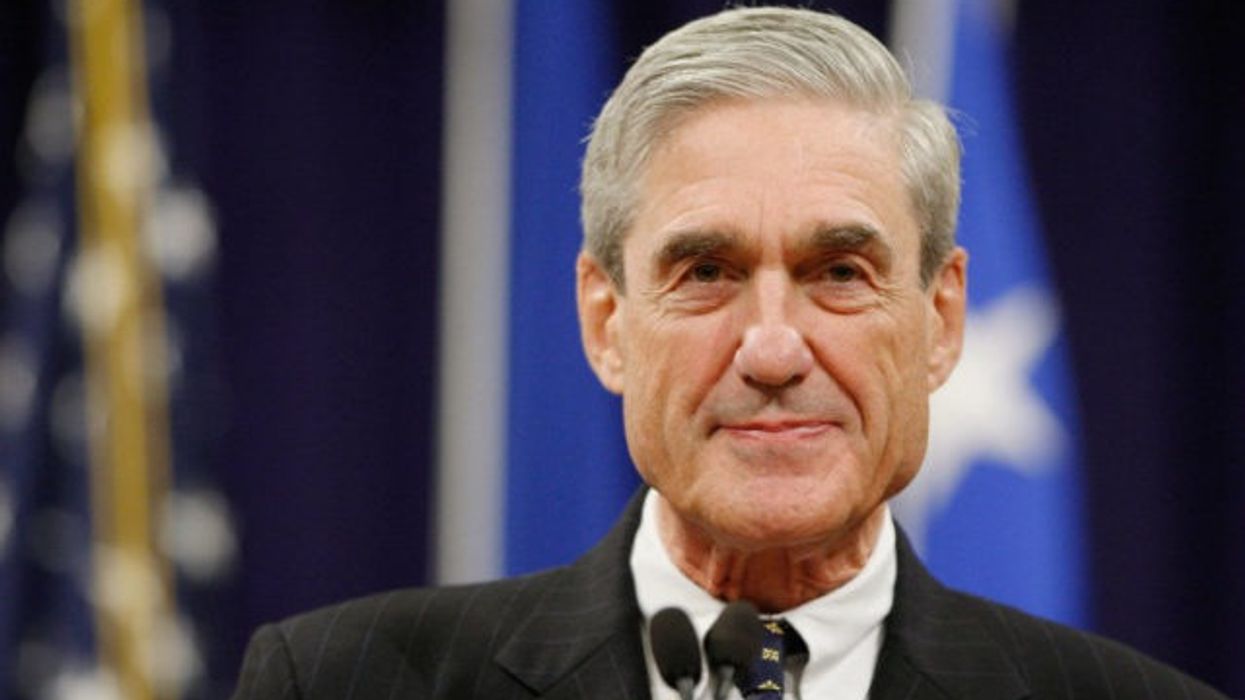
Robert Mueller
As Americans struggle to grasp President Donald Trump's reversal of American foreign policy, which abruptly overturned decades of cooperation with other democracies to contain authoritarian aggression, many observers have faltered.
Describing what Trump has done strains the usual vocabulary of analysts, who are still not fully prepared to confront this administration's insidious purposes
Yet there is a word familiar from Trump's first term that now defines precisely what he and Russian President Vladimir Putin are up to. That word is "collusion."
For most of the past decade, nothing provoked more anger in Trump and his associate than that word, which evoked a sinister and secretive connection dating back to his first presidential campaign or in some versions much earlier. Rumors circulated widely about his alleged status as a longtime asset of Russian security services, beginning in the Soviet era, or his supposed vulnerability to gamy blackmail by those same agencies, or his desire, eventually well documented, to build a "Trump Tower" in Moscow.
And during that 2016 campaign, copious evidence emerged that not only had the Kremlin wanted Trump to defeat its nemesis Hillary Clinton, but its leadership had enacted a whole series of "active measures" to ensure that result.
Under Putin's direct orders, Russian agencies pursued a broad strategy of online hacking and disinformation. Based in Putin's hometown of Saint Petersburg, the Internet Research Agency launched a barrage of social media designed to promote Trump and denigrate Clinton, influencing millions of Americans during the election cycle with fabricated stories. Hackers working for Russian military intelligence invaded the databases of the Democratic Party and the Clinton campaign, releasing reams of stolen files and emails through WikiLeaks and other outlets to create embarrassment and distraction.
It could not have been more obvious that the Trump campaign welcomed and encouraged Putin's election interference. Donald Trump Jr., then-campaign chairman Paul Manafort and numerous other campaign aides met or contacted the Russians on as many as 200 occasions to pursue their shared objective. Even the sycophantic campaign chair Steve Bannon blurted that this pattern of behavior struck him as "treasonous."
Whether all this activity amounted to treason or not, the FBI and congressional investigating committees found enough evidence of espionage and other crimes to justify the appointment in May 2017 of former FBI Director Robert Mueller as a special counsel to investigate "Russiagate."
In addition to firing former FBI Director James Comey, Trump did everything in his power to thwart the Mueller probe, including the abuse of his pardon power to silence Manafort, former adviser Roger Stone and others. As Mueller reported in 2019, Trump's manipulations helped forestall indictments charging conspiracy between the Trump campaign and its friends from Russia, although Mueller indicted three Russian organizations and 26 individual Russians.
The inability to charge Trump or his associates for conspiring with the Russians to influence the election in no way mitigated Mueller's finding that the Trump campaign had welcomed the Kremlin efforts and expected to benefit from them — a finding corroborated by the Republican-led Senate Select Committee on Intelligence's five-volume report on the same matter, released in July 2019.
Nevertheless, Trump and his minions in the Republican propaganda machine obscured all the damning details to proclaim full exoneration — and Trump himself constantly repeated the phrase "no collusion," usually in all capital letters and punctuated as an exclamation, to insist that "Russia, Russia, Russia" was nothing more than "a hoax." Ever since then, he and his apologists have frequently and ludicrously declared that he was in fact history's toughest negotiator with the Kremlin, without a blush.
But now, behind the thin scrim of "peacemaking" in Ukraine, we see the noxious flowering of collusion in its fullest form.
From the Pentagon to the State Department to the White House, the direction of U.S. policy is unmistakable: to deprive the Ukrainians of sovereignty and freedom while bringing them under the Russian heel as quickly as possible. Among those advancing Russia's interests is Defense Secretary Pete Hegseth, who boobishly capitulated in advance of the so-called negotiations.
Hegseth was surpassed only by Trump himself, who consulted secretly with his pal Putin while excluding Ukrainian President Volodymyr Zelenskyy from the process, then insulted and threatened the Ukraine leader publicly.
This nefarious initiative has expanded in many directions, from Vice President JD Vance's threats against our European allies and his promotion of neo-Nazism in the German election to Elon Musk's use of his Starlink satellite system as an instrument of blackmail against Ukraine. Where it will go is terrifying to contemplate, but we can at least give it an accurate name.
It is nothing less than collusion between an American president and a hostile foreign dictator — and it is the most brazen betrayal in our history.
Joe Conason is founder and editor-in-chief of The National Memo. He is also editor-at-large of Type Investigations, a nonprofit investigative reporting organization formerly known as The Investigative Fund. His latest book is The Longest Con: How Grifters, Swindlers and Frauds Hijacked American Conservatism.
Reprinted with permission from Creators.








